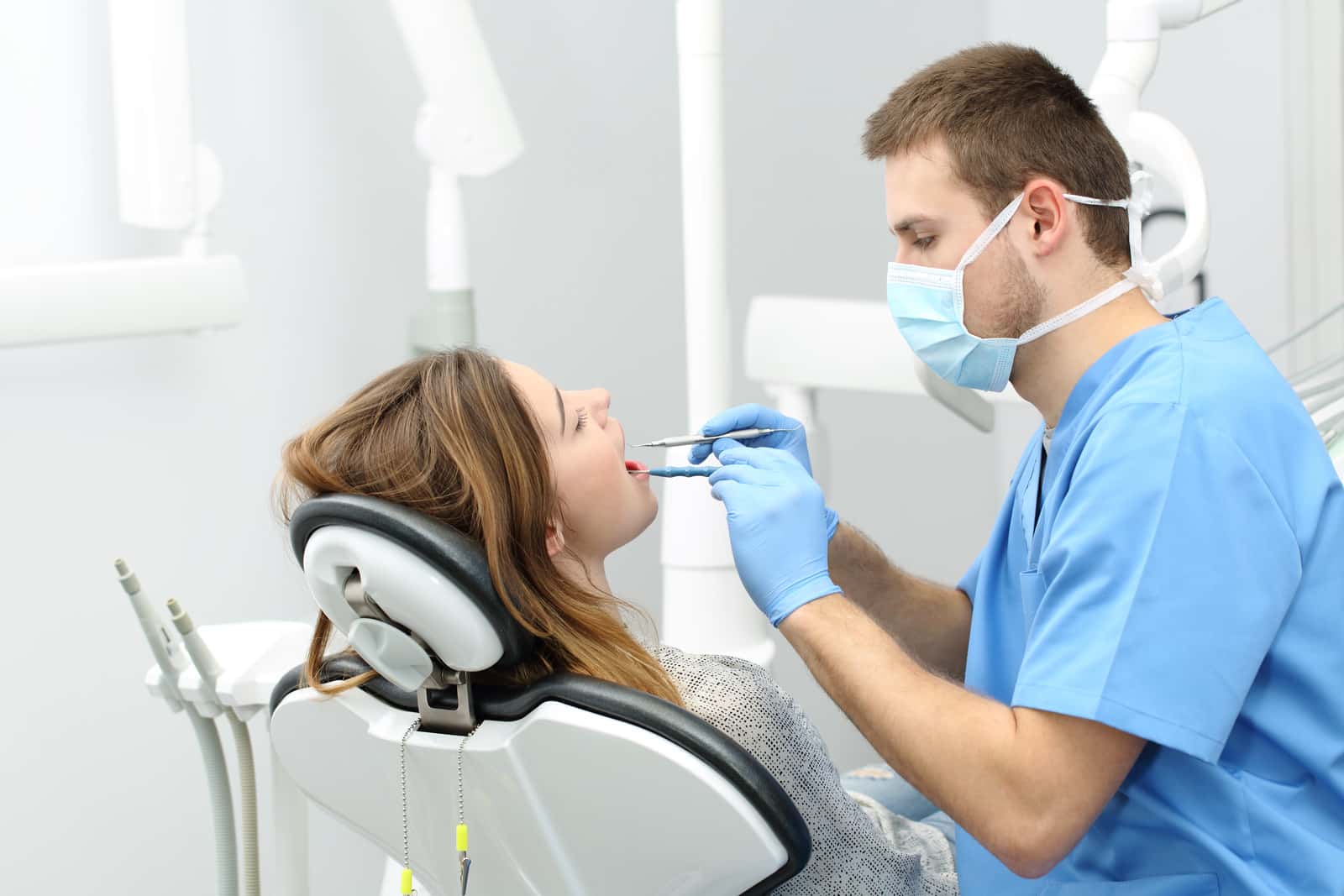Professional Tips for Choosing the Right Dentists Eugene for Your Dental Health
Professional Tips for Choosing the Right Dentists Eugene for Your Dental Health
Blog Article
An Overview to Common Oral Conditions That Need a Dentist's Care
Toothaches, for example, can be symptomatic of extreme problems such as dental caries, fractured teeth, or abscesses, each needing certain interventions like fillings or root canals. Influenced knowledge teeth and jaw disorders can introduce considerable discomfort and problems.
Toothaches
Toothaches are a typical oral problem that can vary from moderate discomfort to serious discomfort, commonly suggesting a hidden issue that calls for expert interest. This pain can come from a range of sources, consisting of tooth decays, split or fractured teeth, and dental abscesses. Each of these problems positions significant risks if left unattended, potentially bring about more serious problems.
Dental cavities, likewise recognized as caries, are triggered by the build-up of plaque that wears down tooth enamel, leading to holes or pits in the impacted teeth. Abscesses are unpleasant infections at the origin of a tooth or in between a tooth and the periodontal, typically resulting from serious decay or untreated tooth cavities.
Effective treatment of toothaches involves addressing the source. This might include fillings for dental caries, crowns for cracked teeth, or origin canals and antibiotics for abscesses. Early intervention by an oral expert can stop further wear and tear and ease pain, making sure ideal oral health.
Periodontal Condition

The primary reason of periodontal condition is microbial plaque, a sticky, anemic film that regularly bases on teeth. Poor oral hygiene, smoking, hereditary predisposition, and certain medical conditions, such as diabetes mellitus, can exacerbate the danger of developing periodontal disease. Routine dental examinations are important for very early detection and monitoring of this problem.
Treatment for gum disease ranges from specialist oral cleaning and scaling to more innovative procedures like origin planing and periodontal surgical treatment, relying on the intensity. Keeping great dental hygiene methods, including brushing twice daily, flossing, and utilizing an antibacterial mouthwash, can dramatically decrease the risk of gum tissue disease and promote much healthier periodontals.
Cavities
Dental caries, also called dental cavities, are a typical oral problem defined by the devastation of tooth enamel due to acid-producing germs in the mouth. These microorganisms flourish on sugars and starches from food and drinks, producing acids that gradually wear down the enamel, bring about dental caries formation.
Early-stage tooth cavities might not show signs, yet as they advance, they can create tooth pain, sensitivity to cold or warm, noticeable holes or pits in the teeth, and staining. If left neglected, tooth cavities can permeate reference deeper layers of the tooth, possibly leading to severe pain, infection, and even tooth loss.
Preventing dental caries entails a combination of good oral health practices and nutritional behaviors. Regular brushing with fluoride tooth paste, flossing, and routine oral examinations are crucial. Dental professionals may likewise recommend added preventive actions, such as fluoride treatments and oral sealants, to safeguard teeth from degeneration.
Treatment for tooth cavities depends upon their seriousness. Minor tooth cavities can be resolved with dental fillings, which recover the tooth's structure. Advanced instances might need crowns and even root canal therapy if the degeneration has actually gotten to the tooth's pulp. Prompt intervention by a dental practitioner is important to prevent difficulties and keep overall dental health.
Impacted Wisdom Teeth
Impacted wisdom teeth are a common oral concern that takes place when the 3rd molars, typically described as knowledge teeth, fail to totally arise or straighten appropriately within the mouth. This problem frequently arises from insufficient area in the jaw or an irregular growth angle of the teeth. Impacted knowledge teeth can lead to a range of complications, including infection, discomfort, and damages to adjacent teeth.
When knowledge teeth come to be affected, they are typically partially emerged or remain entirely under the gum tissue line. This partial eruption can develop a pathway for germs to enter the periodontals, why not try here bring about infections that manifest as swelling, pain, and also fever (dentist in eugene oregon). In addition, affected wisdom teeth can put in pressure on bordering teeth, potentially triggering crowding or shifting
A detailed oral assessment, commonly involving X-rays, is vital for detecting affected wisdom teeth. Regular dental check-ups are recommended to monitor the problem and preserve dental health and wellness.
Jaw Disorders
Conclusion

Dental dental caries, additionally known as caries, are created by the accumulation of plaque that wears down tooth enamel, leading to holes or pits in the impacted teeth. Abscesses are agonizing infections at the root of a tooth or between a tooth and the gum tissue, typically resulting from extreme degeneration or untreated dental caries.
Affected wisdom teeth are a prevalent oral problem that occurs when the third molars, commonly referred to as knowledge teeth, fail to completely arise or align correctly within the mouth. Affected wisdom teeth can lead to a range of difficulties, including discomfort, infection, and damages to adjacent teeth.
Additionally, influenced knowledge teeth can apply pressure on surrounding teeth, possibly creating crowding or moving.
Report this page